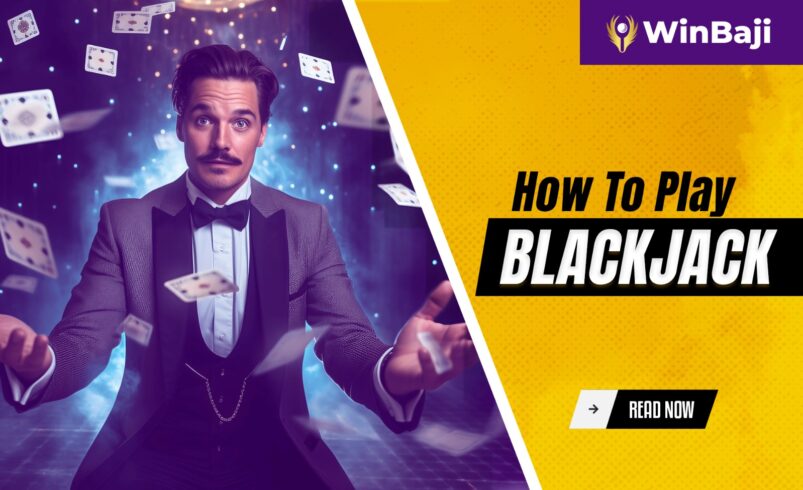How To Play Blackjack Bangladesh: Rules, Strategy

An Introduction to Blackjack – How to Play Manual
Blackjack is one of the most famous casino games in Bangladesh, and indeed the wider world. A perpetual fixture at land-based casinos the breadth and length of the country, it’s hardly surprising blackjack has become even more famous for bettors on mobile and online.
Blackjack is mainly a game of skill, and players who understand the strategic component of the game are better placed to benefit over time. While there is still a component of chance in the cards you are dealt, knowing how to respond to various hands, when to play aggressively, and when to pull back is crucial to becoming a more fruitful player.
There are various versions of blackjack played globally, in addition to several online versions with their twist on the concept. For this article, we’re looking particularly at the Bangladesh version. However, numerous of the same principles apply, particularly when it comes to discussing hand strategy and how to bet. So let’s get into all the details of how to play blackjack in a casino.
The Rules – How to Play Blackjack
The aim of blackjack is fairly easy – to defeat the dealer. Players attempt to make the highest value hand possible, up to a maximum of twenty-one. Hands valued at 22 or greater directly lose – this is known as going bust. Hands of 21 are the finest, and players can normally stand when their hand value is a firm 17 or greater. In Bangladesh, the dealer has to stand on a soft 17.
If you wish to learn how to play blackjack, you firstly are required to know the value of each card. Hand value is decided by the numerical value of the cards in your hand. Numbered cards are allocated their number in points 7s are worth 7 points, 8s are worth 8 points, and so on. The high cards 10-K are all valued at 10 points, while Aces holds a value of 11 or 1, based on the value of your gand at any time.
While it is common for blackjack to be played with numerous players around the table, each hand takes place between the individual player and the dealer only. So if the person to your left has a better hand than you, it’s unrelated – all that matters is that your hand has a greater value than the dealer’s hand, without heading over the 21 edge.
Also Read: Android vs iOS for Playing Rummy
The game moves in turns, with players summoned to bet on the strength of the 2 card hands they are dealt. Players have the option to stand or hit with every rotation till the game is completed, based on their hand – to draw another card or to cling to what they’ve got. The dealer has limited room for activity and plays more effortlessly, frequently sticking automatically at 17s or greater.
It’s up to you to decide whether you wish to push for a greater value hand with an extra card or to stick with what you’ve got in anticipation of winning. When the bets have been placed and you’ve drawn as many cards as you deem critical, the dealer will play their hand to decide the benchmark. If you defeat the dealer’s hand concerning value, you triumph. The finest beginning hand accessible is a natural blackjack – an Ace and any 10-point value card. This cannot normally be defeated, and your worst result is a push if the dealer also holds blackjack.
Likewise, if the dealer does bust, you succeed automatically. If the dealer’s hand is firmer, you lose. If the hand is tied, bets are thrust – i.e. delivered at break even on the hand.
Soft hands are those where the player has probably room to draw another card without going over 21. These invariably include an Ace, which flutters between 11 and 1 as required. Hard hands are those where the player is already sitting with a higher-value hand, where in numerous cases the ensuing hand will tip them over the edge. While you are free to hit until you have an aggressive hand, the art of blackjack comes in knowing when to stand, split, double down, hit, or in any way during the game.
In-Game Actions
Besides deciding whether to stand or hit and how much to bet at the outset of each hand, there are several other decisions open to blackjack gamblers along the way.
Double Down – this is a chance to double down on your bet, best taken when you are certain you’re in a succeeding position. This should be booked for extremely firm hands but is a valuable mechanism for getting the largest payouts from your firmest hands. The outcome is you double your stake, but also double your possible take if you do go to triumph against the dealer’s hand.
Split Pairs – whenever you have a set of cards, the alternative to Split becomes accessible. This splits the set to make 2 new hands of the same stake value, and an extra card is dealt to each of these hands. This is a strategy best utilized with 8s and Aces. Any hand with an Ace is in an extremely firm position, except for a pair of Aces – together, these are solely worth 12, but individually, they are worth 2 hands of eleven before the extra card is factored in. This creates tons of chances for one or both of those hands to reach the even low twenties or the high teens, without going bust on the ensuing draw.
Similarly, with eights, two 8s together are with sixteen – quite low to certainly stand, but too high to easily draw another card without bursting your hand. Splitting them up into 2 hands is always a better strategy.
Double Down After Splitting – there’s also the chance to double down after splitting sets, doubling your bet on both hands. Again, it relies very much on the value of your hands and whether you think you have a practical opportunity to beat the dealer with one or both. Both hands will be multiplied in stake, on a stake that has already doubled from your first bet. It’s thus suggested that you solely double down after dividing where you are in an extremely firm position.
Insurance – there is also a side bet accessible when the dealer is sitting on a ten or above beginning hand. This is insurance against the dealer holding the blackjack. In reality, this isn’t suggested for sincere players. While it can assist conserve your losses in some instances, it serves to elevate the house edge – thus slimming down your opportunities of winning long-term. While it may pay off on a given hand, you’re best to evade the insurance bet at virtually all times.
Given that blackjack is played between the dealer and the player only, it’s likely to play numerous hands simultaneously. When players split, they multiply the number of hands in play. However, as a rule, a few players opt to play multiple hands at any one time, to keep the game moving forward and to offer more chances to bet and win.
Blackjack Fundamental Strategy – Blackjack for New Players
Blackjack’s fundamental strategy is a significant area of study, and the majority of serious players can commit years to perfecting their craft. In numerous situations, there is a clear move to make, depending on the probabilities of your hand and the likeness of the cards left over in the deck.
As a simple example, consider you draw 2 cards at random from a 52-card deck –a King and an 8. As a blackjack hand, this is valued at 18. If you were to draw an extra card from the deck, you have an evenly greater opportunity of drawing any other card over making a set – because there is now one less 8 card and one less King card in the pack. If you hit 18, you are required to draw Ace, 2, or 3 to stay within the 21 limits. Anything more will bust your hand.
From the deck we’re left with, there are 4 x Ace cards, 4 x 2 cards, and 4 x 3 cards remaining – so you have a 12 in 50 opportunity of drawing a helpful card – a slightly less than a 20% opportunity of elevating your hand value. That means there’s an astonishing 8-% opportunity of going bust on the ensuing card. While this is a simplistic instance, it should be clear that the strategic move here is to stand with your hand of 18.
Not everyone can make quick decisions depending on the probability of the ensuing card drawn, especially when there are frequently multiple decks in play, and numerous players sharing cards from the same deck. This is where card counting makes an appearance.
A few players attempt to keep running counts or even a true count of the cards that have previously been drawn, and thus the cards remaining in the shoe. This is extremely tough in practice, but there are several techniques players can utilize to approximate probability and give better results than chance, just by knowing how to respond to various valued hands in distinctive game situations.
On the face of things, blackjack looks like one of the most effortless table games. But looks can be deceiving and that’s why it’s crucial you know how to play blackjack to maximize your opportunities of winning. While there are numerous straightforward, clear moves you can make in a few situations, others require quick judgments to play the probabilities in a way that is most advantageous to your game in the long term. That’s why a couple of the finest blackjack players commit so much attention and time to improving their strategy. If you wish to test your skills you can play blackjack here at the Winbaji official site.
Also Read: Baccarat Strategy – Everything You Need to Know
Common Blackjack Errors to Avoid
As a new blackjack gambler, it’s worth setting yourself a few ground rules while you learn how to play the game. Particularly, there are numerous key no-nos you want to keep away from, to keep your game on form and abstain from rubbing the dealer up the wrong way.
Not Standing on Twelve Against a Five
There’s a rule in blackjack that says you should not risk busting your hand when the dealer is presenting a weak upcard and this is the instance when you have a 12 and the dealer has a 5. The dealer has to hit a minimum of two more times, so the finest play is to stand and pray the dealer busts. You don’t want to be hitting in this situation, so not standing is a NO-NO.
Not Hitting on Sixteen Against a Seven
In the same way, if you’re looking at a sixteen against a dealer seven, that’s an indication you want to be hitting. When the dealer has a seven, you have to assume he has a sum of 17, and thus your finest alternative is to hit and hope you pull a small card to beat the dealer’s sum. You don’t want to be standing in this situation and hitting is the finest play.
Don’t Tell Others How to Play Their Hands
This is one of the swiftest ways to single yourself out at a blackjack table, and not in a decent way. There’s always one guy hanging over other people’s shoulders, attempting to give them guidance where it’s not wanted. If someone wants your assistance, they’ll ask for it, and it’s considered quite a bad form to be too proactive in offering up your point of view.
Instead, you should aim all your attention on your own game, and make the best of your calls on every hand. Not only is it far more likely you’ll be in the black by the conclusion of the night, but you’ll also not have irritated your fellow players while doing so.
Don’t Touch the Cards
The sole thing you should be touching on the blackjack table is your gaming chips – any other thing is down to the dealer. When the cards are dealt facing up, players are not allowed to touch the cards under circumstances – it’s possibly one of the simplest ways to get yourself ejected from the game. Instead, pause for the dealer to rearrange your cards as needed.
This stems mainly from casino security. Overhead cameras monitor each game as it moves forward, so need to be able to see all cards at all points of time. Touching cards could be constructed as an effort to cheat, and a majority of casinos aren’t especially accommodating if they think you were trying to save them. It’s best to be avoided.
Don’t Fault the Dealer
This is sadly an all-too-common sight, especially amongst less experienced blackjack gamblers. A bad run of cards can and will take place now and then, and understandably players might get irritated when things aren’t going in their favor. But this is never an excuse to blame the dealer or to otherwise vent your anger publicly at the blackjack table. Not only is it ridiculous and counterproductive, but in a few instances, it might even constitute abuse and bullying of someone who’s just doing their job.
It’s pleasant to be nice, and that includes towards the dealer – even if you’re having a not-so-good day. If anything, you should be hurling them a chip or two as a tip for their service.
Don’t Take Side Bets
Side bets are in nearly all cases in favor of the house – the house edge isn’t worth the upshot of the side bet. While there are some occasions where players might enjoy a side bet, solely for the entertainment element, this isn’t a logical road to be taking if you’re serious about your blackjack play.
Instead, concentrate on improving your strategy and developing your understanding of the game – this will make you a much better blackjack player, and if you abide by it, you’ll hopefully win more cash playing blackjack as a consequence.
Play Blackjack at Winbaji
You can play online blackjack at Winbaji. With our comprehensive blackjack manuals by your side, you’ll have the confidence to begin playing at log stakes and work your way up.
For an even more thrilling casino gaming experience, step into the universe of live blackjack at Winbaji. Immerse yourself in actual action with skilled dealers and communicate with other players as you battle for major wins.
Join us now to enjoy the genuine live casino atmosphere right from the comfort of your bed. Don’t miss out on the thrill – visit our licensed and regulated online casino platform today!

FAQs
- What are the important in-game actions to know in blackjack?
Crucial in-game actions in blackjack include standing, hitting, splitting pairs, doubling down, taking insurance, and doubling down after splitting. - How can you better your blackjack strategy?
To better your blackjack strategy, you should study the fundamental strategies, concentrate on understanding probabilities, learn card counting methods, and get yourself familiar with when to make critical decisions such as doubling down, standing, splitting pairs, and hitting. - What is the distinction between hard and soft hands in blackjack?
A soft hand in blackjack attributes an Ace that can be counted as either 11 or 1, offering the player the ease to draw an extra card without going bust. On the other hand, a hard hand has a predetermined value, frequently higher, where drawing another card might lead to busting.








